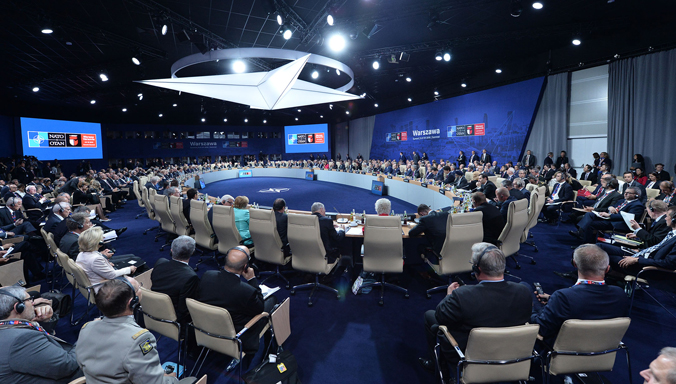NATO steps up efforts to project stability and strengthen partners
NATO leaders on Saturday (9 July) agreed a set of decisions to project stability beyond the Alliance’s borders, including starting a new training and capacity building effort in Iraq and the use of AWACS surveillance aircraft to support the Global Coalition to Counter ISIL.

“To the south we see failed and failing states. And millions left homeless and hopeless by terrorist groups like ISIL.” NATO Secretary General Stoltenberg told a news conference on day two of the NATO Summit. “This instability has a direct impact on our societies. The scale of the challenge demands that we take action”.
Mr Stoltenberg said that NATO will soon deploy a team to Baghdad to start planning for the new training effort in Iraq and to provide strategic advice to Iraqi Ministries. He announced that NATO is providing advice to the Tunisian authorities on the development of a Tunisian Intelligence Fusion Centre and will provide training to Tunisian Special Operations Forces. NATO leaders also agreed to launch a new maritime security operation in the Mediterranean Sea. Operation Sea Guardian will have a broad scope, including providing situational awareness, countering trafficking and terrorism, upholding freedom of navigation and contributing to regional capacity building. "We intend to work closely with the European Union's Operation Sophia in the Central Mediterranean, building on our swift and effective cooperation with the EU to cut lines of international human trafficking in the Aegean", Mr. Stoltenberg said.
Earlier on Saturday, Allied leaders underscored NATO’s continued support for Afghanistan, including a continuation of the Resolute Support mission into 2017 and continued funding of the Afghan forces until 2020.
The Secretary General also announced that the next NATO Summit will be held at the new NATO headquarters in Brussels in 2017.
